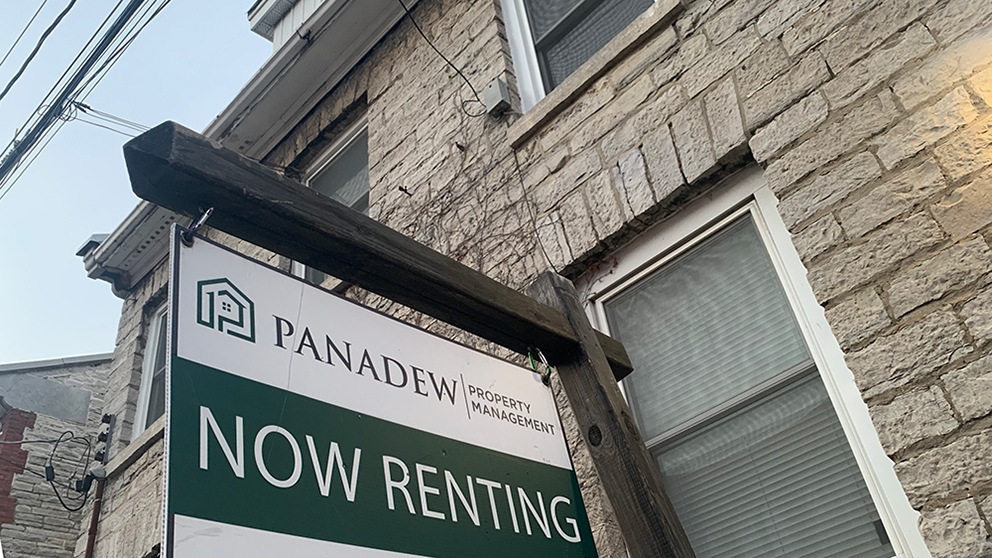Housing crisis, COVID-19 ‘a rock and a hard place’ for some in Halifax
A number of HRM residents are facing difficult decisions amid the two crises

caption
Affordable housing is scarce in Halifax.When the provincial eviction ban ended on June 1, Lisa Logan and her four children had two days to pack up their three-bedroom house and vacate.
Logan said she didn’t know anything about eviction orders at the time. She didn’t know it would take effect so soon after the ban, which stopped landlords from evicting tenants facing hardships due to COVID-19, had ended.
“It was very hard for me and my kids,” Logan said during a live-streamed housing symposium hosted by The Housing and Homelessness Partnership on Monday.
“We’ve never been through anything quite like this before. You learn quickly that a fridge and a stove are a luxury because most hotels don’t have those.” Related stories
Since the eviction, Logan said, her family has stayed in several hotels and has had difficulty adjusting to life away from their family home.
The pandemic has intensified the effects of the city’s affordable housing crisis on people’s daily lives in ways that many people don’t understand, several Halifax residents said at Monday’s symposium.
As members of a panel on COVID-19 and housing, Logan and Dartmouth resident Vel Oakes offered their perspectives on the interrelated issues based on their lived experiences.

caption
Lisa Logan (left) and Vel Oakes (right) were members of a panel on lived experience at the Housing Symposium.Oakes said her reason for being a part of the panel was to remind people that many things are taken for granted.
“When COVID locked down the world on March 13, I didn’t have home internet,” Oakes said. “And it seemed like everything suddenly, with no warning, went, ‘Do everything online.’”
Oakes has since had wireless internet installed in her home but said others haven’t been able to do the same.
“Some people that I know are facing the fact that, ‘I either pay my rent or I bring internet into my house,’” Oakes said. “They’re going to be in between a rock and a hard place.”
She said that internet-enabled services like grocery delivery, while convenient, are made inaccessible to many people due to added fees and the need for internet and a credit card.
“Someone said, ‘Well Vel, it’s only a couple of dollars,’” Oakes said. “I have to tell you, it’s not an ‘only’ thing; in some cases, it may be everything.”
The symposium also featured panels on one African Nova Scotian community experience and an Indigenous perspective.
Tammy Ewing is a youth outreach worker with the East Preston Daycare and Family Resource Centre. She said members of her community had to depend on each other for resources and many couldn’t properly self-isolate due to limited vacancy in the community.
Pam Glode-Desrochers, executive director of the Mi’kmaw Native Friendship Centre, touted the resilience of Mi’kmaw communities during the pandemic. She said there was a “huge” influx of need from the community and the centre and its partners did well to adapt and deliver the resources required.
By the numbers
Brandon Grant, executive director of homelessness for the Department of Municipal Affairs and Housing, said thanks to the work of agencies and non-profits, the province has been able to house 647 people since Apr. 1, roughly 90 more than all of last year.
Jim Graham, executive director of the Affordable Housing Association of Nova Scotia (AHANS), said the organization received $1.8 million through the federal Reaching Home program and $330,000 from the province to be used for pandemic-related interventions. Graham said AHANS expensed $2.1 million in services, including hotel space, shelter staff wage supplements, food, transportation and insurance.
Kevin Hooper, manager of partnerships and community development with United Way Halifax, said the organization was able to invest $2.2 million in Halifax and $3.8 million across the Atlantic provinces, which went to “dozens” of front-line agencies.
About the author
Simon Smith
Simon Smith is a multimedia journalist with The Signal in Halifax, Nova Scotia. He is an avid traveller and is interested in local news, business,...
